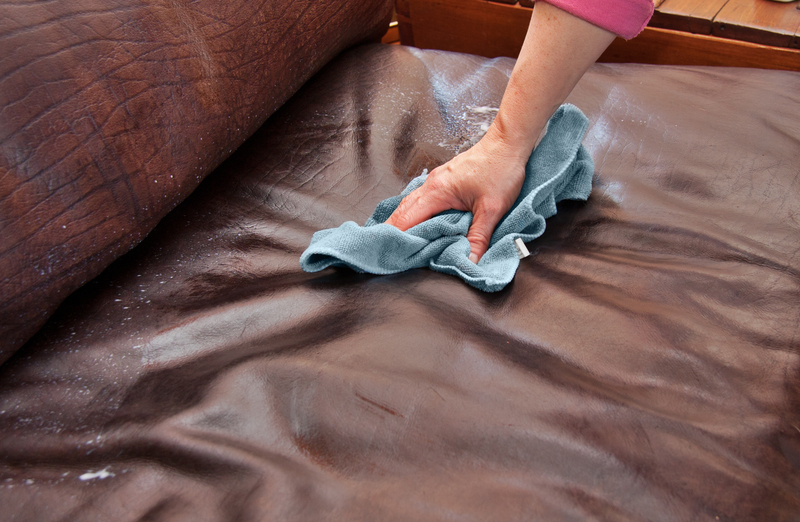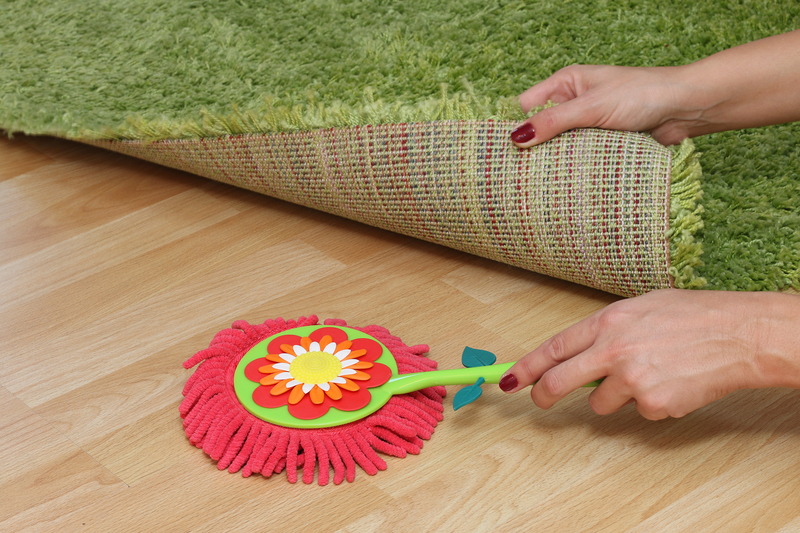Gleaming Gems: Essential Jewellery Cleaning Practices
Posted on 18/08/2025
Gleaming Gems: Essential Jewellery Cleaning Practices
Do you want your jewellery to shine as brightly as the day you bought it? Whether it's a sparkling diamond ring, a lustrous pearl necklace, or a vintage gold bracelet, each piece deserves special care and attention. In this comprehensive guide, we'll uncover professional tips and essential jewellery cleaning practices to keep your treasures sparkling. Let's dive in and discover how easy it is to preserve that radiant gleam!
Why Jewellery Cleaning Matters
Jewellery isn't just about adornment; it's an investment, a personal story, sometimes even a family heirloom. With regular use and exposure, dust, oils, and environmental particles can dull its shine. Here's why proper jewellery cleaning is essential:
- Preserves brilliance: Clean jewellery reflects light better, showcasing its true beauty.
- Prevents damage: Dirt and grime can erode prongs, clasps, and settings over time.
- Enhances longevity: Routine care can prevent tarnish, scratches, and premature wear.
- Ensures hygiene: Rings and earrings trap bacteria and sweat, which can irritate skin.

Understanding Your Jewellery
Before you start any jewel cleaning routine, it's important to know what kind of pieces you're dealing with. Different stones and metals require different care approaches. Consider the following:
- Precious metals: Gold, silver, platinum require gentle, non-abrasive cleaning.
- Gemstones: Diamonds are hardy, but pearls, opals, and emeralds are delicate and need special care.
- Settings: Prong, bezel, and channel settings may need careful inspection for damage or loose stones.
Tip: Always identify materials before choosing a cleaning solution to avoid accidental damage!
Common Jewellery Cleaning Methods
Let's explore the best practices to clean your jewellery at home. These gentle procedures are suitable for most precious metals and gemstones, but always verify the specific requirements for your piece.
1. The Classic Soap & Water Method
- Mix lukewarm water with a few drops of mild dish soap.
- Soak your jewels for 10-15 minutes, allowing grime to loosen.
- Use a soft-bristle toothbrush to gently scrub hard-to-reach areas.
- Rinse thoroughly with clean water.
- Pat dry with a lint-free cloth.
Best for: Diamonds, gold, most hard gemstones, platinum.
2. Baking Soda Paste for Silver Jewellery
- Mix three parts baking soda with one part water.
- Gently rub the paste onto the silver with a soft cloth (avoid gemstones).
- Rinse thoroughly and buff dry to a gleaming finish.
Note: Avoid baking soda on soft stones or gold--it may scratch or dull surfaces.
3. Professional Jewellery Cleaners
- Use store-bought commercial cleaners for metals like gold, platinum, and diamonds.
- Always follow the manufacturer's instructions.
- Do a patch test on a small section if uncertain about your jewellery's material.
4. Ultrasonic Jewellery Cleaners: Handle With Care
- Ultrasonic cleaners use high-frequency sound waves to remove dirt.
- Applicable for: diamond jewellery and some metals.
- Never use with pearls, opals, emeralds, or antique pieces--they can crack or break.
5. Gentle Care for Pearls and Soft Stones
- Wipe with a soft, damp cloth--never soak pearls!
- Allow pearls to dry flat before storing.
- Keep away from harsh chemicals, perfumes, and excess moisture.
What NOT to Do: Jewellery Cleaning Mistakes to Avoid
Good intentions can sometimes lead to accidental damage. Avoid these common jewellery cleaning errors:
- Using harsh chemicals: Bleach, ammonia, and acetone can cause irreparable damage.
- Boiling jewellery: Sudden temperature changes can fracture gems and metals.
- Using toothpaste: Abrasive and can scratch delicate surfaces.
- Wearing jewellery when cleaning: Detergents and dirt can build up or corrode.
Remember: When in doubt, consult a professional jeweller--especially with valuable or antique pieces.
Advanced Tips for Long-Term Jewellery Maintenance
Routine Inspections
- Examine settings: Look for loose prongs or missing stones.
- Check clasps and hinges for wear and tear.
- Seek a professional checkup annually--most jewelers provide cleaning and repairs.
Proper Storage Solutions
- Store pieces separately to prevent scratches and tangles.
- Use lined jewellery boxes or fabric pouches.
- Silica gel packs can absorb excess moisture and prevent tarnish.
Protecting Your Jewellery Day-to-Day
- Remove rings when washing hands, gardening, or doing housework.
- Avoid exposing gems to perfumes, lotions, and hairsprays.
- Take off jewellery before swimming (chlorine can damage metals).
Special Care: Antique and Heirloom Jewellery
Antiques and heirlooms often feature unique settings, aged metals, and delicate stones. When cleaning these precious pieces:
- Avoid DIY cleaning unless advised by a jeweller.
- Use soft brushes and non-abrasive cloths only.
- Never submerge in water, especially if pieces have glued settings or porous stones.
- Consult a professional for deep cleaning and restoration.
Understanding Ultrasonic and Steam Cleaning
Advanced methods like ultrasonic and steam cleaning are best left to professionals or used with caution for modern, robust pieces. Here's when to use them:
- Ultrasonic: Ideal for plain diamond rings, not suitable for soft or treated stones.
- Steam cleaning: Removes grime from hard-to-reach places, but not suitable for delicate antiques.
Important: Always check the suitability of these methods for your specific jewellery to avoid unwanted surprises.
Natural and Eco-Friendly Jewellery Cleaning Tips
If you prefer natural jewellery cleaning solutions, try these gentle home remedies:
- White vinegar for silver: Soak tarnished silver jewellery for 2-3 hours, then polish gently.
- Bicarbonate of soda for gold: Sprinkle on a damp cloth, rub gently, rinse and dry.
- Eco-friendly dish soap: Mix with warm water for a safe, toxin-free cleaning bath.
What to Avoid with DIY and Home Remedies
- Don't use lemon juice on soft stones--it's acidic and can erode surfaces.
- Don't use abrasive materials that could cause scratches, especially on gold and pearls.
When to Seek Professional Jewellery Cleaning
Not all jewellery can (or should) be cleaned at home. Here are signs it's time to see a professional:
- Your jewellery is heavily tarnished or has stubborn grime.
- You own vintage, antique, or family heirloom pieces.
- You notice loose stones, bent prongs, or broken clasps.
- The jewellery features delicate, porous, or treated stones.
Frequently Asked Questions
How often should I clean my jewellery?
For pieces you wear daily (like engagement rings), clean weekly. Less-used items can be cleaned monthly or as needed. Have heirlooms or special occasion items checked by professionals once a year.
Can I use household cleaners for jewellery?
No! Avoid regular household cleaners--they contain harsh chemicals that can harm both metals and stones. Always stick to mild, jewellery-friendly solutions.
Is ultrasonic cleaning safe for all jewellery?
No--ultrasonic cleaning is only safe for specific, durable stones like diamonds and sapphires set in well-made settings. Never use ultrasonics on opals, pearls, emeralds, or vintage pieces.
Can I use soap and water for pearls?
Do not soak pearls in soapy water! Instead, simply wipe with a soft, damp (not wet!) cloth after each wear.

Final Thoughts: Keeping Your Gems Gleaming
Proper jewellery cleaning is about balance--between removing grime and preserving delicacy. With regular care and attention, your gems will continue to shine, capturing every eye and compliment. Remember to avoid shortcuts, protect your treasures daily, and never hesitate to consult an expert when in doubt.
Gleaming gems deserve your respect, vigilance, and just a little bit of effort. Follow these essential jewellery cleaning practices, and your collection will dazzle for generations to come!
Summary: Essential Steps for Gleaming Jewellery
- Identify your jewellery's materials and tailor cleaning methods accordingly.
- Stick to mild cleaners and gentle techniques to protect delicate pieces.
- Regularly inspect for wear, damage, and loose settings.
- Store jewellery with care to minimize scratches and tarnish.
- Avoid harsh chemicals, boiling, and abrasive pastes like toothpaste.
- Seek professional help for antiques, complex, or fragile pieces.
With these practices, your jewels will radiate brilliance--now and always.




